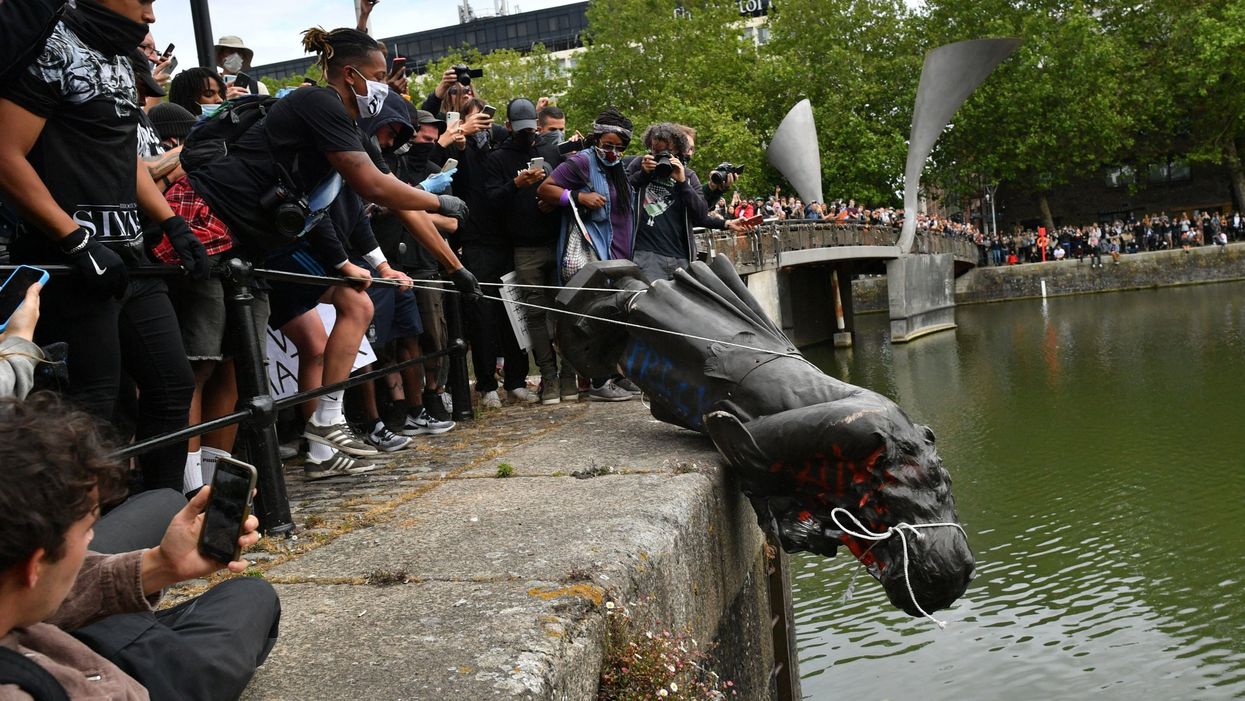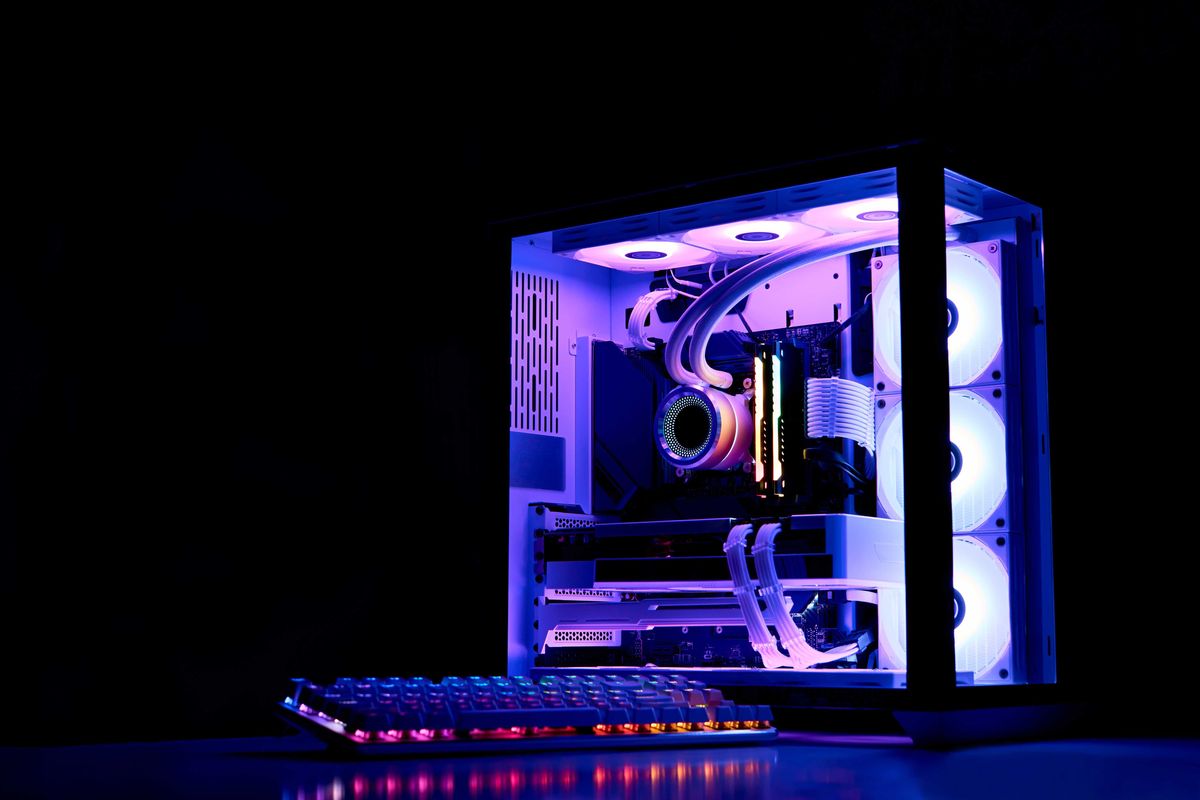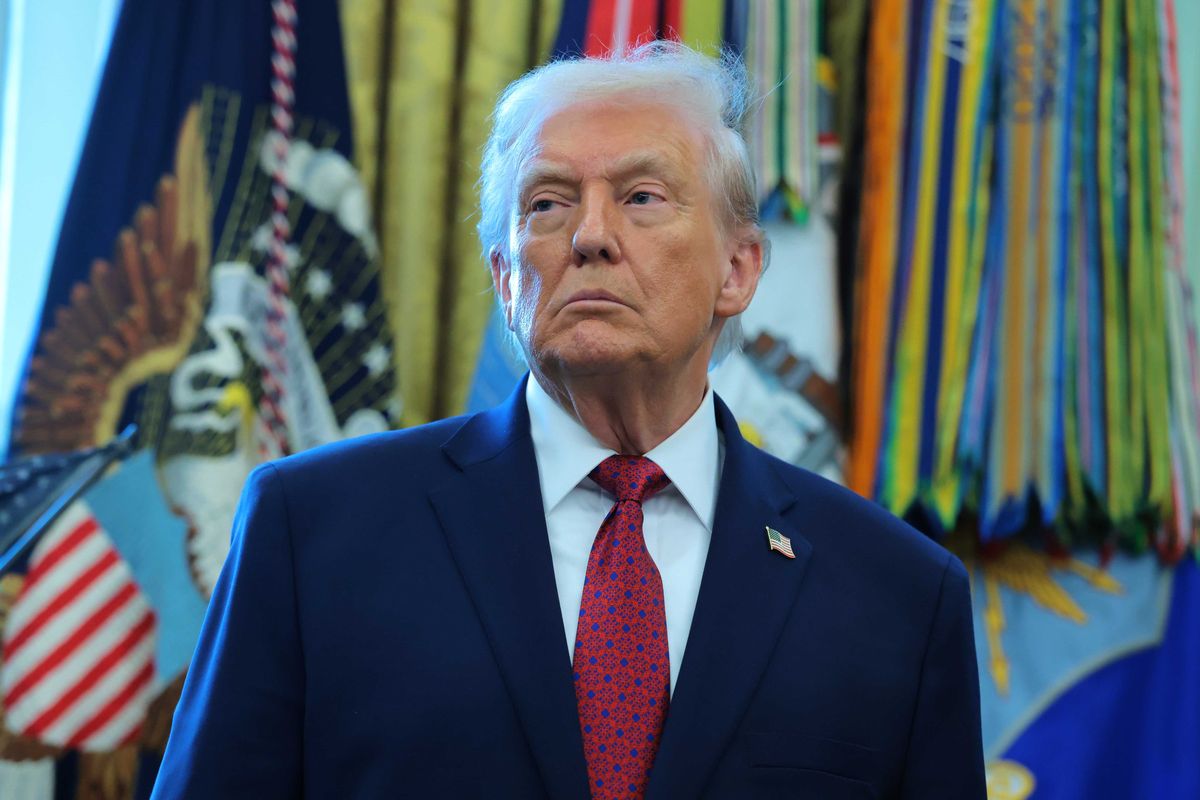Ellie Abraham
Dec 31, 2020

Protesters throw a statue of Edward Colston into Bristol harbour during a Black Lives Matter rally on 7 June 2020
PA
The Black Lives Matter movement began as a hashtag on social media in 2013 after the acquittal of George Zimmerman, who shot and killed Black teenager 17-year-old Trayvon Martin in 2012.
The slogan has gained significant traction in the response to police brutality and violence against Black people. In 2020, though, it reached fever pitch after a series of murders of African Americans shocked the world.
13 March: Breonna Taylor is murdered
Plain clothes Louisville police officers shot and killed 26-year-old Breonna Taylor during a botched raid on her apartment. Her death put a spotlight on the female victims of anti-black violence, with the social justice campaign #SayHerName raising the global profile of her killing.
5 May: Footage of Ahmaud Arbery’s murder begins circulating
On February 23, 2020, Ahmaud Arbery was out jogging in Glynn County, Georgia when he was pursued in a van before being shot and killed. He was 25 years old, unarmed and Black. Footage of the incident began to publicly emerge, prompting calls for justice and arrests to made for the murder that had taken place over two months prior.
25 May: George Floyd is killed
George Floyd was murdered when white Minnesota police officer, Derek Chauvin, knelt on his neck for almost nine minutes during his arrest in Minneapolis. Floyd reportedly said 20 times that he couldn’t breathe, yet the officer failed to remove his knee from his neck. Footage was shared across social media and the Black Lives Matter movement erupted.
26 May: First protests in the US
As footage and the news of Floyd’s murder spread, protests began almost immediately in Minelappolis, where his murder had taken place and spreading rapidly to other cities in the United States and worldwide. Protestors regularly clashed with brutal police.
Early June: UK-wide anti-racism protests begin
Towns and cities across the country begin organising their own Black Lives Matter protests to not only take a stand against police brutality in the US, but also instances of racism and systemic racism here in the UK - the avoidable death of transport worker Belly Mujinga raised questions of racial inequality, for instance. Many took the knee as a symbolic gesture in support of the movement.
3 June: 13 million petition signatures
A petition calling for justice for George Floyd breaks a record as the most signed petition ever on Change.com. Started on the 27 May, by 3 June it had received over 13 million signatures and called for charges to be brought against all four police officers involved in Floyd’s killing. Today, it has over 19.5 million signatures.
7 June: Edward Coulston statue torn down
During a BLM protest in Bristol, a statue of historic slave owner Edward Colston was torn down. Colston made his fortune in the trading of slaves and his name is emblazoned on streets, buildings and, until recently, a school across the city. This action was, for many, a symbol of defiance against his legacy that leaves scars to this day.
8 June: Boris Johnson claimed the UK isn’t racist
In a video posted on Twitter, the Prime Minister made the bold claim that the UK is 'not racist.' His statement came in response to the protests taking place across the country, but people very quickly proved him wrong with his own previous racist comments.
9 June: Keir Starmer takes the knee in support of BLM
Posting a photo on his Twitter account, Labour leader Keir Starmer and deputy leader Angela Rayner took the knee to show their support for the BLM movement. But, the picture drew a mixed response as it was pointed out he has done nothing about racism in his own party.
17 June: Premier League football resumes
After a long hiatus, football’s Premier League returned without fans. At all of the first 12 matches, players wore shirts that replaced their names with a badge reading ‘Black Lives Matter’, and all players took the knee before the game kicked off.
29 June: Keir Starmer calls idea of defunding the police “absurd’
In an interview on BBC Breakfast, Keir Starmer said he supported the “moment’ of BLM which broadly stands against anti-Black violence, but called its political call to defund the police “absurd”, to which right-wing commentator Nigel Farage agreed.
16 July: Government announces Commission on Race and Ethnic Disparities
The government announced a new commission that will look at issues of racial injustice in “areas of health, education, criminal justice and employment.”
As the BLM movement surged, questions began to be asked about racial inequality, discrimination and predjuices that are embeeded in British society, which has failed to reckon with its racist history that permetates the present. This commission aims to look into it.
3 November: Biden wins US election with help from the Black vote
As Joe Biden won the US election, many praised Black voters for helping him get there. Vote counts revealed areas with high numbers of Black voters - places like Detroit, Milwaukee, Atlanta and Philadelphia - helped him flip many of the states Trump won in the previous election.
5 December: Football fans boo taking the knee
For the first time since the start of the coronavirus pandemic, a limited number of fans were allowed back in the stadiums. A minority of fans at Millwall and Colchester United matches booed when the players took the knee at the start of the match. Footballers remain defiant in their desire to stand up against racial injustices.
Top 100
The Conversation (0)












